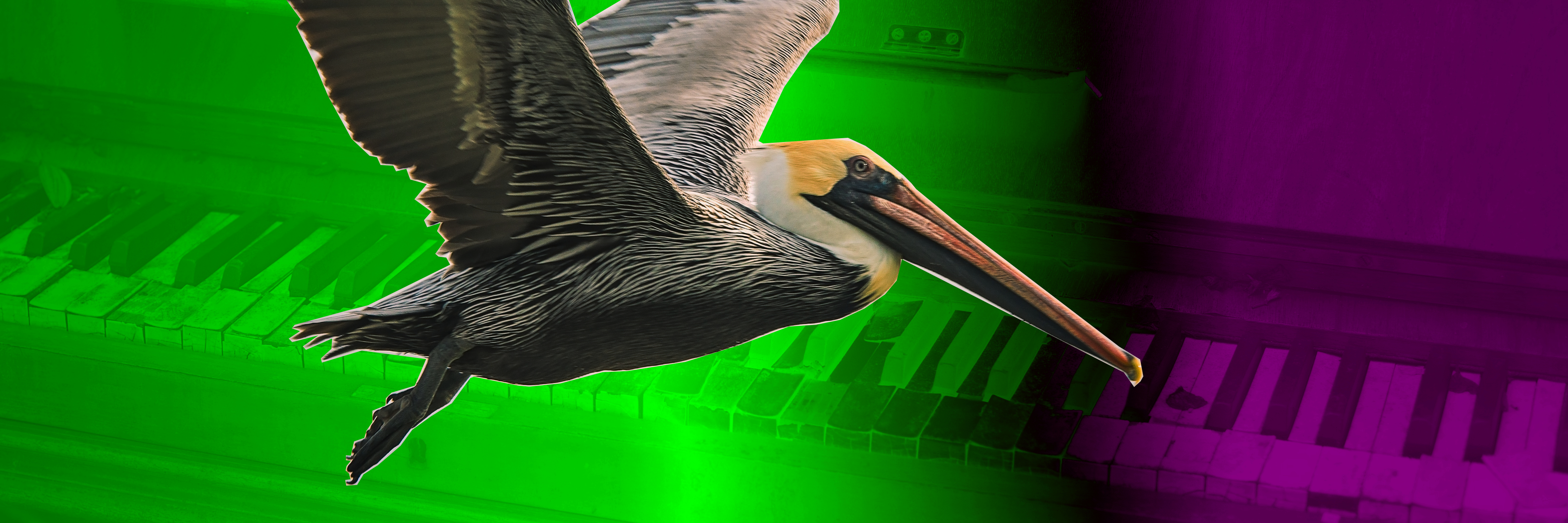Confidence One Day, Terrible Doubt the Next

Think of a day where everything seems to click. A day you write a song you can’t help listening to over and over.
It seems there are no limits on where you can go from here.
The next day, you sit down to write your next song, excited by the possibilities. And it’s a total disaster.
The chords are boring, the melodies awkward, and the lyrics embarrassing. Nothing you try seems to work.
What are you even doing? You’ll never write a good song again.
A hidden explanation
The cycle of confidence and doubt is real, and I’d guess that almost every musician who’s built any confidence has experienced it. Maybe continuously.
There are a lot of possible explanations. Sometimes adversity, depression, or illness plays a role. But I think it often comes down to something we don’t discuss too much in music: pure luck.
We are still beholden to the image of sorcerer-musicians who wield mystical powers over their music, the creativity flowing out of them as they form great works of art from the ether.
But if you listen to songwriters who’ve written respected music, you’ll often hear one of two explanations for their successful songs: inspiration or hard work. Both deeply involve luck.
Luck in songwriting
I’m guessing when you write a song, you want it to be something at least some people will love.
In order to love it, it has to make sense to them somehow. And it can only make sense if it draws on music they already know.
But you probably don’t want your music to just repeat what’s come before. You want it to bear your distinctive mark, and to do something new, even if it’s subtle.
Doing something new is always a risk.
You won’t know ahead of time how it will sound, or how people will react to it. And to get there, you have to explore musical ideas that are unfamiliar to you.
Wherever there’s risk, there’s luck. And the more interesting you want your music to be, the more risk (and hence luck) you face.
Why musicians invented the Muse
When you’re dealing with luck, it’s guaranteed you’re going to fail sometimes. You can’t flip a coin and see tails forever.
And as you continue to improve as a songwriter, your bar for success is going to keep getting higher. That means failure will follow you wherever you go.
When things are clicking, when you’re writing music you love, and when the ideas are flowing, you begin to feel like you’re in control. Like maybe you’re one of those sorcerer-musicians.
But when things inevitably fall apart, and you can’t seem to do anything right, it’s tempting to think it was something else working through you.
Inspiration, the Muse, whatever you want to call it. And if the Muse is gone, what’s the point in trying?
Replacing control with potential
If you know you’re going to succeed sometimes and fail often, then you don’t need “the Muse” to explain the ups and downs. That’s just handing power over to an idea beyond your control.
You can’t control the outcome of the dice, but you can choose to keep rolling them. And maybe you can change the dice.
I think it’s more powerful to think of inspiration as an alignment of circumstance with all of the musical potential you’ve built up over the years.
And you can build that potential even when your songwriting powers seem to be broken.
Building your potential
How do you build it? There are countless ways.
-
Listen to your favorite music. Listen to music you’ve never heard before. And reflect on it. What works, what doesn’t? Which parts do you love?
-
Play your instrument (or sing). Don’t think about the results or about writing. Just explore, and keep exploring. Focus on each chord and phrase, each moment as it passes into the next.
-
Learn new songs. Play them in new ways. Change them a little or twist them until they’re unrecognizable.
-
Experiment with new ways of writing. Try a new instrument, or a new sound, or a new key. Devise exercises and keep modifying them.
-
Read about music. Read about anything. Keep new ideas flowing in. Take notes about anything and everything. Find lyrics and snippets of melodies in the strangest places.
-
Learn new skills, techniques on your instrument, sound synthesis, singing styles, poetry, chord progressions. Explore skills that seem to have nothing to do with music.
I could keep going. But with all of these examples, the point is not to write a good song. The point is to build your musical potential one day at a time.
Making luck a collaborator
Each of the suggestions I’ve listed above stretches your potential by adding to an inner store of ideas and techniques.
When you do all of these things, you’re loading the dice in your favor. You’re making it possible for circumstance and potential to line up, for something great to emerge.
And then it’s a matter of writing, day after day, rolling the dice until they inevitably land in your favor.
When you experience the terrible doubt that you’ve lost your touch or you’re not cut out to write music, remember that you saw this coming. That it might even mean you’ve grown as a songwriter.
And then get back to building your potential.